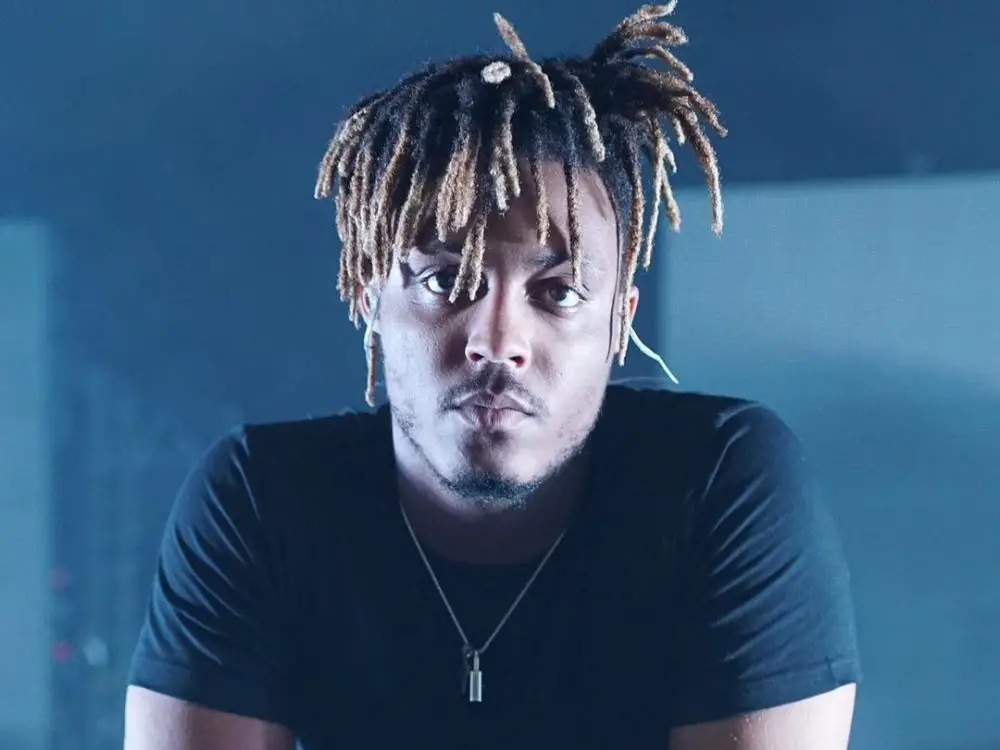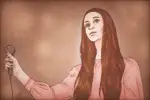Black Americans have come a long way in breaking down barriers and dismantling negative stereotypes and stigmas. The death of Juice Wrld, however, proves we still have a long way to go, and that there are many necessary conversations to be had. One topic specifically: black mental health. Yes, it is a thing. Every race endures and suffers from its own daily issues, traumas and conflicts. Black mental health is the mental health awareness of black people all around the world, whether in America, Africa, the Caribbean or any other area they reside in.
Unfortunately, most countries in Africa and the Caribbean stigmatize any type of psychotherapy or mental illness. Even common issues such as anxiety and depression aren’t considered “real problems” but a figment of the imagination. Since most black Americans descend from Africa and the Caribbean, these stereotypes of mental health have been passed down from generation to generation.
Although mental health has just been introduced and gradually accepted into society in the past couple decades, the stigma holds stronger for black people compared to white people. Because throughout U.S. history, the struggles for black people were always greater and there is always an underlying pressure to be 10 times better just to compete or survive in their environment. Mental health was not a luxury that could be afforded when there were so many other problems to overcome, such as survival.
An episode of the critically-acclaimed young adult drama “Grownish” brought much-needed attention to black mental health. A student on the show attempted to commit suicide through drugs; in response, Aaron, the RA on duty, decided to orchestrate a discussion with the tenants of the dorm to see how everyone was dealing with everything that had just happened.
“We are the ones struggling with the normal stresses of college, going to a predominantly white school, and having to deal with the pressures of being black in America,” said Dee, played by guest star Jordyn Woods. She stated her grievance when one of the “solutions” was to go see a counselor. That seems to be the answer nowadays whenever someone is exhibiting signs of an unhealthy mental state; however, it’s not always that easy.
https://www.instagram.com/p/B0d2NV_luzd/?utm_source=ig_web_copy_link
Being black and looking for guidance from someone who is not black doesn’t always serve the intended purpose of help. Representation matters for the simple fact that it’s harder to take advice from someone — even if they’re an expert — when they don’t share the same experiences as you.
Unfortunately, because of this nation’s past, the color of one’s skin does place a certain perspective on life that not everyone will understand. The episode also pointed out that the diversity pool of the psychological workforce is very shallow, making it even tougher for black Americans, not just college students, to seek help.
For centuries, music has been a way for black people to voice their hurt, struggles and anger over what they’ve been through and seen. Whether it be the negro spirituals during centuries of slavery, the sadness of blues and jazz, the soulful tunes of R&B or the gangster rap/hip-hop of the ’90s — it’s all in the lyrics. Yet a lot of people choose to hear the music instead of acknowledging the pain of the words.
The death of rising Chicago star Juice Wrld on Dec. 8, 2019 was not only tragic, but genuinely unexpected. Even though, simultaneously, it was to be expected at some point. NPR reported that the artist had passed away after a seizure induced by an accidental overdose of oxycodone and codeine.
He had turned 21 just days prior. It was no secret that Juice Wrld partook in countless drugs and rapped about it in music. This caused a couple of celebrities, such as Vic Mensa to TMZ, to call out artists in the hip-hop community that have frequently talked about drugs in their music, claiming that they’re normalizing addiction. However, that is not always the case.
Juice Wrld was born in Chicago and raised by a single mother. He started using harsher drugs at an early age and was drinking lean since he was in middle school. In his song “Scared to Love,” he sings, “You’re way too much, too, too much. The weight is heavy on my shoulders, girl, you’re too much. You put my heart in a grave, I get no love. No, I need more drugs, way too much. All I ever do is get f–ked up. All I ever wanted was a real love. Got a pint of the lean, I done lucked out.”
In his song “Legends” he sings, “What’s the 27 club, we ain’t making past 21.” He also says, “They tell me I’ma be a legend, I don’t want that title now ’cause all the legends seem to die out, what the f–k is this ’bout?” Even songs like “Ain’t Livin Right” and “Lucid Dreams,” which many millennials faithfully sang at parties, talk about his drug use and depression.
Rapper G Herbo recently dropped his newest album, “PTSD,” in February. He did an interview with Complex where he talks about why the album is so important to him after growing up in one of the worst neighborhoods in Chicago and getting diagnosed with PTSD, which as a black man in America — let alone one that grew up in a neighborhood such as his — is very commendable and goes to show how important it is. Toxic masculinity is very much a real thing, especially for black men.
He then elaborates on his album cover and how the 50 stars on the American flag are replaced with pictures of people that he knew personally that had passed away. He said that alone can cause PTSD, and a large number of black people suffer from this every day due to systematic racism in America that puts and keeps black people in environments of danger (aka ghettos/hoods).
Even prisons play a major part in the decline of black mental health because even though they make up only 32% of America’s population, black people contribute to 56% of the incarcerated population, according to a 2015 report by the NAACP.
Being in prison is already a psychological war — now add the mental toll of solitary confinement. Sometimes prisoners go days without human contact or food, and due to prejudice, their crime often doesn’t match the punishment. It’s challenging to overcome, and many prisoners complete their sentences going off into the world with PTSD just to end up right back in prison within three years because they’re not able to adapt to the outside world again. It’s a never-ending cycle.
Another big example is rising hip-hop star Roddy Ricch, who came out with Billboard No. 1 album “Please Excuse Me for Being Antisocial” in December. In an interview with Rolling Stone he said, “I been through a lot, going through s–t like bullets flying, it’ll f–k you up a little bit. It triggers something else in you… Being in rooms where you don’t have to worry about s–t, I don’t get that side of life yet. I’ll be in the room with millionaires and billionaires and still be like, ‘What’s going on? Who’s that at the door?’”
In the interview, he also speaks about losing one of his best friends and supporters right as he started to get big. His quote indicates that he most likely suffers from PTSD after growing up in a similar place as G Herbo, and despite all his success, he still can’t leave his demons behind. Just last March, his mentor Nipsey Hussle passed away, and to this day he continues to mourn and pay tribute to him.
Instead of coming down and pointing fingers at artists like Juice Wrld, maybe people need to read between the lines and acknowledge that he needed help. He was hurting, obviously depressed and he said it multiple times through his music. It should also say something that so many people not only listen to his songs but actually relate to his lyrics and feelings. What does that say about this entire generation?
People used to come down on NWA just for rapping about what they grew up around their entire lives. They didn’t choose that life and they could’ve been doing other activities such as falling into the stereotype of selling drugs and gangbanging; instead, they created a whole sub-genre called gangster rap, and now you can find anybody bumping to that type of music.
It’s unfortunate that the realities of many black American lives are considered “inappropriate,” “violent” and something that people condemn rather than find solutions to improve their way of living (and that doesn’t mean gentrification — but that’s a whole other article).
















